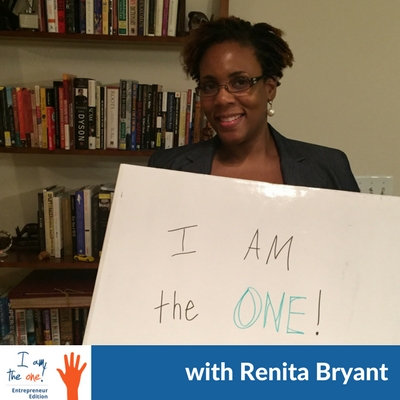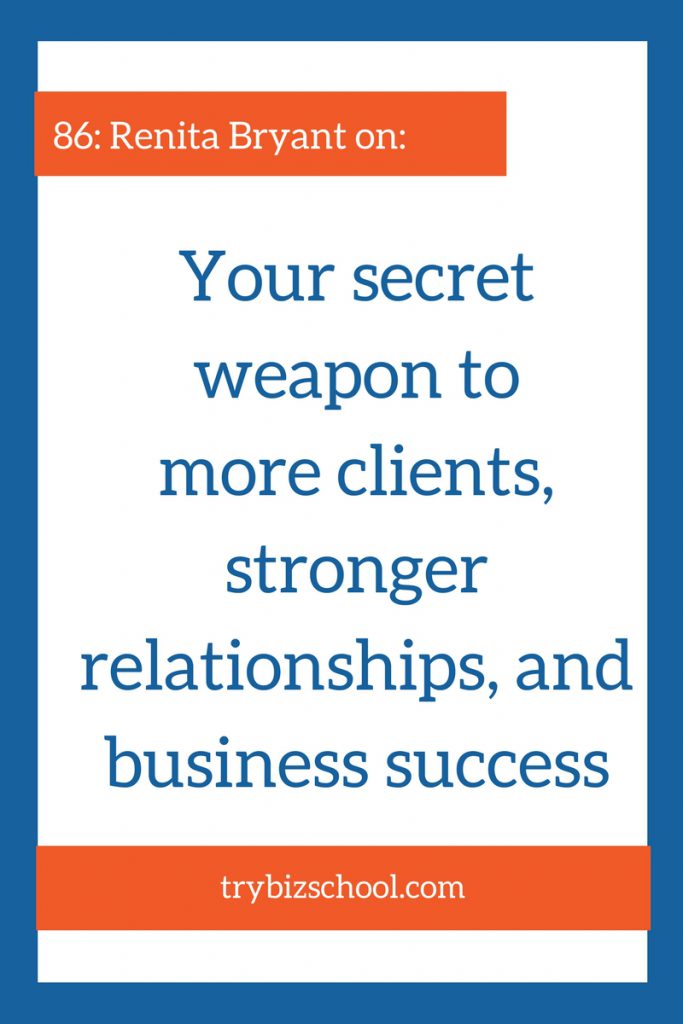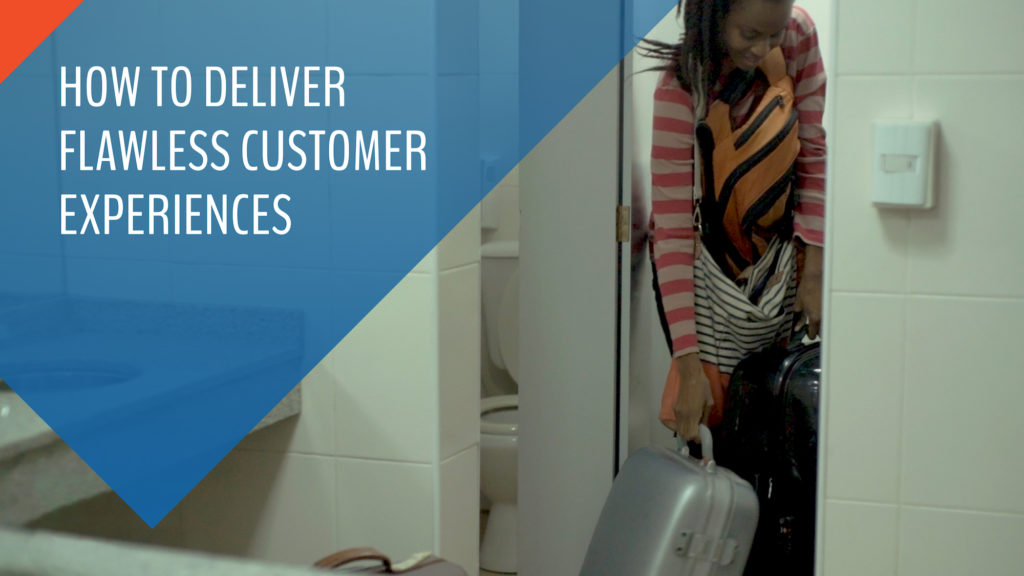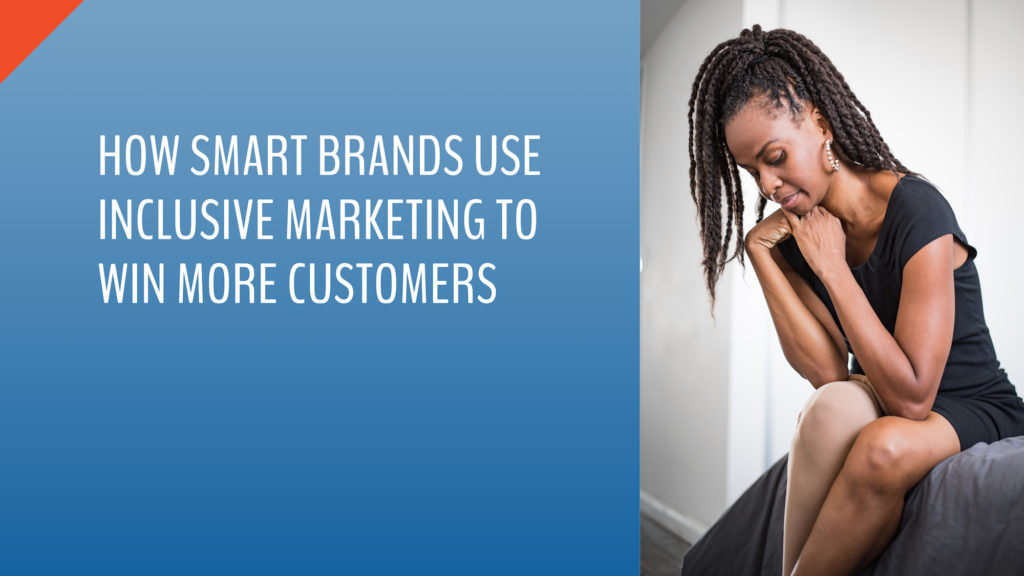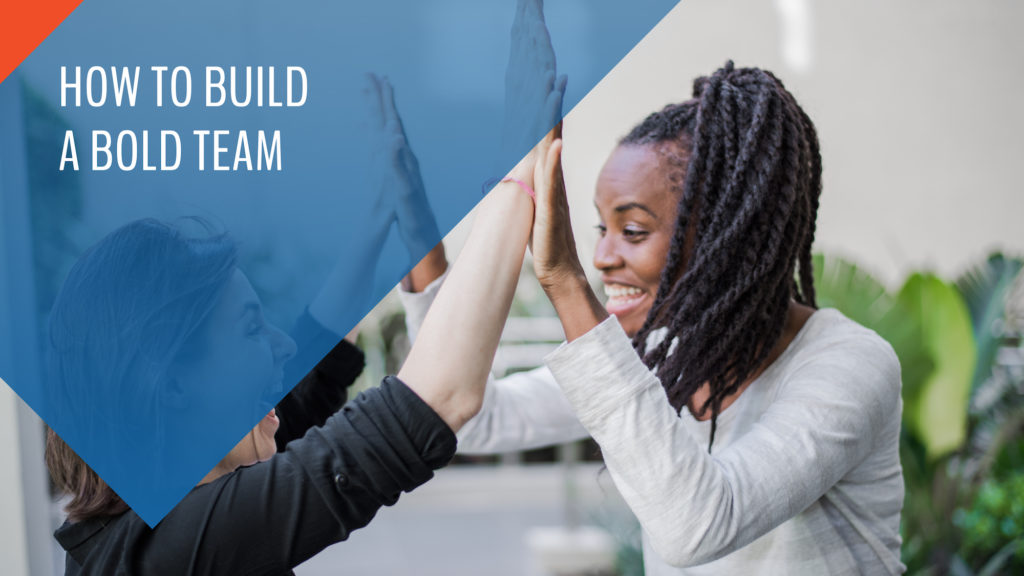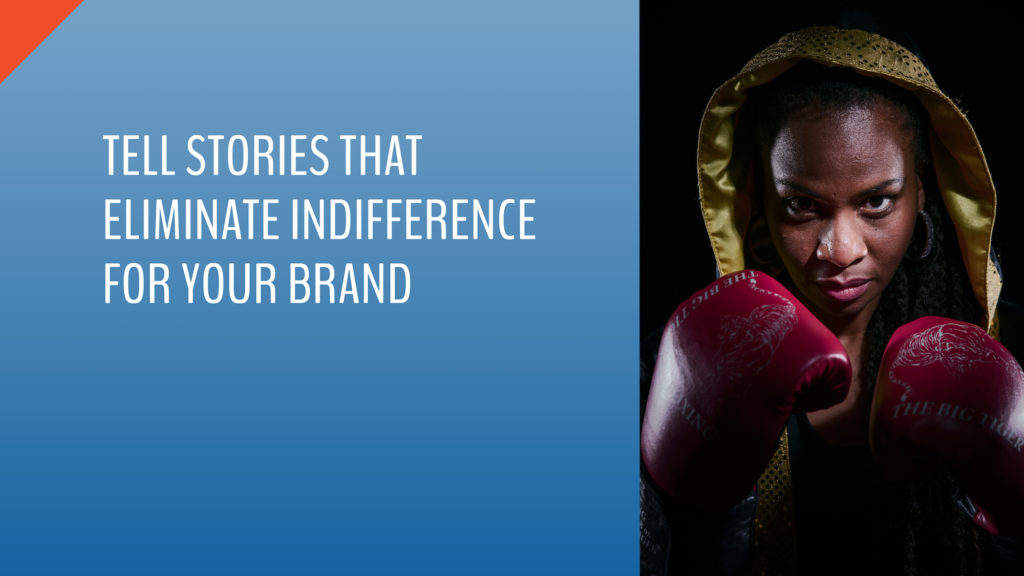Renita Bryant is the founder of SightsSet, a consumer-centric consultancy that helps brands uncover the insights they need to make the decisions they need to grow their businesses.
She’s also the founder of Mynd Matters Publishing, where she helps current and aspiring authors launch their book projects.
We can learn a ton from Renita, in particular the superpower she’s committed to employing that’s enabled her to build not 1 but 2 successful businesses.
Key points:
- How to gain confidence in your skills and abilities
- How to effectively close out a client project
- How to discover how to help your clients be more successful
- Why comfort is your enemy
- How to build a business that supports your ideal lifestyle
- The critical area of focus that often gets ignored (but absolutely shouldn’t be)
- What it means to embrace your truth as an entrepreneur
Listen to the 30-minute episode here:
Show notes:
Interview transcript:
Sonia Thompson:
Hello Renita, thank you so much for joining me today, how are you?
Renita Bryant:
Sonia I’m good, how are you?
Sonia:
I’m doing well. Alright, let’s go ahead and dive right in. Tell me about your business, you’ve got actually 2 businesses, SightsSet and Mynd Matters. You’re busy.
Renita:
Yes, yes. To say the least, I do. Both are actually consumer-centric consultancies. And when you think about SightsSet, it’s more so focused on consumer insights, marketing strategy for B2C, and when you think about Mynd Matters, it’s really about publishing and helping current or aspiring authors remove the complexity and confusion of the publishing industry so they can get their stories out there.
How to go from stuck to unstuck
Sonia:
Alright, both sound super cool. Consumer-centric consulting, say that 3 times fast. Alright, so tell me, what is the specific problem that you solve for the people you serve for each of these?
Renita:
The way I think about it is helping people go from stuck to unstuck. So when you think about publishing, a lot of times, anybody can write a book, publish their book right, with all of these self-publishing tools, all of these boutique firms, especially eBooks.
So it’s really helping people understand that it’s really not that complex, and really not as confusing. And even though it seems simple, and it seems like anybody can do it, if you’re really a writer that has a story that you want to get out there, most times you’re very close to it, you have a connection to it, and you’re afraid to release it, you’re afraid to put it out there, you’re afraid about what people are going to say.
And so it’s not just about removing the complexity in publishing which is what a lot of these tools did, but it’s also being able to hold somebody’s hand and being able to give them verbal hugs when they need it. So kind of the finger wags when they need that as well, that says “you know hey, we have a timeline, let’s stick to it.”
You’re kind of a confidant, guide, you’re all those things at one time. And so really for us with publishing, it’s about saying “hey, let’s get you from where you are to where you want to be.”
With SightsSet, it is helping these companies that have a business question try to get their questions answered, so they’re still stuck. They think they have a solution, or think they know the answer, and they need to confirm it. Or they have no answer and they just have this brand or this business and they’re trying to figure out “ok, what do I do with this. I don’t really know what my clients or my consumers want.”
Sonia:
Got it. That was a lot of good stuff, super helpful. What made you decide that you were going to be “the one” to solve these problems because I know a lot of us as entrepreneurs have probably used those virtual hugs, and virtual finger wags often, so what made you decide that you were going to be the one to do it?
Renita:
For me it was, it’s interesting because with SightsSet it was really training. It was experiences, all of this knowledge that I have. I graduated from college and went on and worked at these global companies, a couple of different large global companies. And so I learned how to manage consumer insights, I learned how to manage brands from training.
But then with publishing, it was really about passion. So one was born out of what I was taught to do and the other was born out of what I was passionate about doing, what I really wanted to do.
Not that I didn’t want to do insights, they just came about in very different ways.
Sonia:
Got it.
Renita:
For me, I just felt like, wow, you know what, I want to address some of these needs, I want to start a business, I want to be able to do this in a way that I know I can be effective.
That’s kind of how I made the decision.
How to push past feelings of self-doubt so you can grow your business
Sonia:
Sweet. Alright, well let’s switch gears a little bit and talk about your experiences as an entrepreneur. I’m sure you’ve got lots of good stories running 2 businesses.
What would you say was the biggest mindset barrier that you had to deal with, and how did you overcome it?
Renita:
It’s probably one that a lot of entrepreneurs deal with, is that I wasn’t enough. Not just that I wasn’t enough, that my experiences weren’t enough, the journey that I’d been on in my life wasn’t enough, what I knew wasn’t enough, what I’d been taught or trained wasn’t enough.
I just felt like it was a mindset shift to start to, and I think you always struggle with it. But to start to feel as though, you know enough. At least at this point, you know some good stuff. You know a lot more than a lot of other people out there, right.
And to really start believing in what I’d experienced and knew to be true, and what I’d always known to be true. That was something that took me a bit of time to get over and deal with.
Sonia:
Now I know what you’re talking about as being enough, and a lot of entrepreneurs struggle with it. I think they say about 70% of entrepreneurs or people who are high achievers experience Impostor Syndrome at some point.
You’ve worked with some pretty large companies with SightsSet. Was there anything specific that you had to do, because even though you felt that, you felt those feelings of inadequacy maybe a little bit, but you were still able to go in and land those deals and work with them instead of not even going after them.
So was there anything in particular you had to do to say, “alright, we’re just gonna do this anyway?”
Renita
Well I was talking to a friend of mine, that’s launching her business next month. And I told her you have to be a little bit, like you have to think you’re special, or unique, or you have to have a little bit of ego right, to believe that you can launch something and you can make a difference and you can create something that’s innovative and that’s new to the market, and you can do it in a way that’s going to get people to pay you money for it.
And so I think I had enough of that, the ego and the confidence. So in the back of my mind it was Impostor Syndrome, but in terms of being client facing I always, I guess I believed enough to get me over the hurdle.
And then I also had a great support system. I also had people that were telling me, you can do this, you can be this. Believe in yourself. And so having people who told me that I could do it also helped me.
And then sometimes you just throw yourself out there, and you still don’t believe you can do it, but you don’t have a choice when you get the phone call. So you have to respond, you’re sitting there in front of a client that’s called you, and they’ve asked for this meeting with you. And as much as you may think, maybe I shouldn’t be the person that’s in the room, they wanted you, they chose you, so I think that kind of helps you get over that a little bit.
Sonia:
Alright, let’s talk about your habits a little bit. Is there any one habit or suite of habits that lets you operate efficiently and not drop any of the balls for all the ones you’ve got going on in the air?
Renita:
In terms of habits and not dropping balls, so one of the things that I’m very big on is a to-do list. I’m always about writing things down, checking them twice, checking things off.
I remember reading a lot about that in terms of feeling a sense of accomplishment that it also gives you. So I’m also one of those people, where if you do something and it wasn’t on the to-do list, you go back and put it on the to-do list just so you can check it off.
Sonia:
I do that too!
Renita:
I’m one of those types of people. Every now and then you just need to give yourself a little pat on the back. I think some of the habits that make me effective at being an entrepreneur and being able to not drop the balls is just staying on top of things.
I think some of the habits that make me effective at being an entrepreneur and being able to not drop the balls is just staying on top of things. I can be very detail oriented.
I’m also quite responsive. And the fact that I tend to be very responsive in terms of communication, and on projects, and clients reaching out to us to have the initial kick-off call, trying to set up potential projects. Because I’m responsive, because I’m always writing everything down it allows me not to drop the ball.
But because I’m also responsive, I think there can be a downside to that as well. So I’m also very aware of that, because you always have to manage work and life. And if you’re constantly responding very quickly, and always there for your clients, sometimes you forget to be there for yourself.
The smart and simple way to learn what’s working and what isn’t with your clients
Sonia:
Absolutely. Well, let’s talk a bit more about the customer side of your business. Just because you are a consumer-centric consultancy, I like saying that. What are the things that you do, responsiveness is one of the things that you mentioned that helps you cultivate relationships with your clients?
What are the things that you do, responsiveness is one of the things that you mentioned that helps you cultivate relationships with your clients. Is there anything in particular that you do to stay in touch with their specific needs and make sure that you’re maybe always one step ahead of them or maybe know what it is that you need to provide?
Renita:
When you think about insights, we’re all about surveying. When you think about a market research company or consumer insights company, we believe in getting feedback.
I am all about when you close out a project, I was actually on a call today, that was a project close out. So we have a process in place where, we finish a project with you, we have a call and talk about what was your experience. Even if I’m not the one that’s leading that project, I want to check in and find out how you’re feeling, did it meet your expectations.
And we also do surveying, so we send out project close out surveys, to get an understanding. Someone can submit that anonymously, and just let us know how they feel about the work that we were doing, did we meet or exceed expectations, or did we not meet at all their expectations.
For MyndMatters it’s interesting because I’m often working with new or aspiring authors. They need more hand holding. And that’s a good thing because it really keeps us connected.
So I’m always getting feedback because I’m constantly temperature checking. I’m constantly making sure, “you’re not overwhelmed are you?” Because our job is to lessen the stress and complexity, it’s not to add to it.
And so one of the things we’re always doing is asking questions, we’re always asking for feedback, or sending out surveys, and just checking in.
It’s interesting that sometimes business owners and brand owners forget to check-in and ask “how are you doing? How are you feeling?”
Sonia:
Whenever you get that feedback, I know with surveys it’s documented. Whenever you’re with your normal conversations, do you document the things that you hear over and over again, or does it just kind of stay logged in your head, and you’re like “Ok, I got this. This person is feeling overwhelmed when we get to this point in the process.”
Renita:
So that’s actually a good point. For the publishing clients, that’s why that’s been great, because it’s actually helped inform a lot of the process that we have. And some of the process changes that we’ve incorporated as well.
Because we started to see if there’s a pattern, of hey we really need to have a set schedule, and we need to allow additional time at this point in the schedule, because this is where the authors or the new clients start to feel a little bit jittery.
For instance, when it is time for their cover reveal, they are very excited, but it also starts to hit them like “Wow, this is real. This is about to happen.”
There’s just moments that are just pivotal moments in the process. And as you’re going through and working with more and more clients, you hear very similar things. Even if they’re not saying “I’m stressed overwhelmed,” they may just say “Wow, ok. wow.” That “wow” says something. That “wow” tells us something. It could be a good “wow” too.
It’s really writing it down enough to help inform, any changes we need to make. And some of it probably is just logged, I probably hear it and have an awareness of it and I don’t always log it.
How to cultivate effective business relationships
Sonia:
Got it. So one of the other things about relationships that I wanted to ask you is because, one of the things I admire about you a lot is how well you are able to connect with other people, and connect other people.
You’ve got your relationships with your clients. But what do you do, do you put any particular emphasis on making sure that you cultivate beneficial business relationships or relationships with other entrepreneurs or other people, whether or not it means you’re going after a project, just to kind of build your network? How do you go about doing that?
Renita:
I think in some ways, everybody always tries to find an answer to some of these questions, right. I’ve tried to figure out some of this stuff, and some of it is just natural. It’s just who you are.
If you have a natural, I don’t know maybe, I think when I define myself when I describe it I have a natural unwavering commitment to empathy. And so I think it’s made me very effective at being a business owner, in terms of working with different types of clients.
And I think it helps me strengthen relationships with other people, that could be business owners or just people on the street. Because people feel like I connect with them, and most of the time it’s because I always try to figure out what out what experience I’ve had or how I’ve walked in their shoes in some kind of way.
I don’t really know what the tools would be or the steps would be or how to tell someone else to do it. I don’t know, I think I’m just always trying to find the common ground. Maybe that’s it. Just trying to find that common ground with someone else, and most of the time I don’t have to search too hard. I mean, you start talking to someone and if you actually have an interest in hearing them, knowing who they are, finding out more about them, you find out that we aren’t that much different. And we’re a lot more alike than we are different.
I think that has really been a benefit to me in terms of business. And from a business standpoint as well, it has allowed me to see where there may be gaps and opportunities.
So it’s easy to be, “Hey, this person has a gap or opportunity in their business, or this project has a need,” because I’m able to see where other people have strengths or if they bring some sort of skillset to the table that I don’t, I’m able to see a need or opportunity for us to work together.
Other people see that. Or, I’m able to bring them into a project that I’m not even involved in, I don’t make any money off of it, I don’t get anything from it. But I understand that it could be beneficial for them.
And you do things like that enough, and people start to realize that you’re not just somebody trying to take something, you’re trying to add value in some way. And people tend to appreciate people that add value, you want to kind of keep them around.
Sonia:
For sure.
Renita:
I think that’s a part of it. I don’t know, does that answer your question?
Sonia:
It did! It did. It was super helpful. And I think empathy is a skill that not enough people try to cultivate, but it is necessary. Especially as you’re dealing with customers and trying to serve them and understand them, you have to have a level of empathy to be able to do that effectively.
Renita:
I agree. Thank you.
How to build a business that aligns with the lifestyle you want to live
Sonia:
Whenever entrepreneurs start their business, or whenever they are thinking about making that transition, a lot of times their biggest fear is “will I be able to get clients, will people pay me, will I make enough money?”
You’ve been in business for a couple of years now, what would you say is your biggest fear now? It could be the same one, but what would you say now that you’ve been operating for a little bit, and you’ve got something that works. What is the thing that you fear now, or that causes you the most worry or angst?
Renita:
It’s interesting because a part of me feels like it’s knowing and having clarity of vision and understanding what I want for the business, understanding the life that I want to lead, understanding where I want the businesses to go.
And the fear is losing my own momentum. Losing the get up and go, the motivation to go make it happen and getting comfortable. I’d probably say that’s what it is, getting comfortable, getting a little bit too lazy.
Sometimes working for yourself can make you, I mean you’re hungry because you only eat and have lights if you make money, but you can get comfortable, you can have people that are friends that mean well tell you, “hey, this is great, you’re achieving, you’re doing something awesome.” But if they don’t necessarily understand your vision, or they don’t live inside your vision, then it’s hard for them to know that even though this is great, what I have visualized and where I really want to go and what I want, is beyond where I am now.
So I can celebrate and I can be happy for where I am now, but I don’t want to get too comfortable. And I think it’s easy sometimes to get comfortable when everybody is telling you that where you are, it almost makes you feel like it’s good enough. Like you’re trying to do something that you shouldn’t do.
In actuality, that is what I want, so am I wrong going after what I want?
Sonia:
Got it. That’s a great way to think about it because the business isn’t only about making money. There are other that you would have for yourself, and you want to be able to, of course, enjoy the lifestyle that your business enables you to live.
Renita:
Yeah. And we’ve talked about that right, of having a very clear understanding of how you want your days to be spent. Where do you want to spend those days? Do you want to spend them in an office, is your office in the U.S. or abroad.
Is your office by a beach, or on the beach? So what do you want your life to be? How many hours do you want to work, what kind of team do you want to build? All of that takes time, and you have to make sure that you’re taking the steps to get where you want to be.
But it can get comfortable when people are bringing you contracts. The money is what makes you comfortable, but there are things that you have visualized beyond the money. So yeah I know, I know you get that.
Sonia:
So have you had to sit down and intentionally say, “I’m going to do X, Y, and Z to be able, that’s different from what you’re doing now, to get to what my vision is?”
Renita:
Well, yes, I have. And it’s interesting, I’ll tell people when they go into business, it’s not always clear at the very beginning. At the beginning, you have some clarity. You understand a part of what your overall plan will be. You need to have enough of that vision and enough clarity to launch it and move forward.
But even from the start, of especially SightsSet right, but even from the start of that business, I started with a partner, I started with a positioning that’s very different from what it is today. So that business has evolved over the last few years, and so you start out in one place, but it can get to a different place.
Sonia:
How do you adjust? How do you recognize that “I’ve got to maybe say no to this contract”? Like let’s say, do you know what I mean, how do you start to shift things so that you can actually live?
Renita:
That’s a good question. That’s a good question because you’re so timely Sonia. Because in the last few days I’ve been doing a lot of thinking about Mynd Matters. And it’s great because time of year, and you get into a new year and everyone is talking about resolutions and vision board parties, and life planning, and so it’s been great. It’s really thinking about that business in a different way because a couple of years ago, or even a year ago, Mynd Matters was a nice to have.
And to be quite honest, it was a passion, but I wasn’t really going after with the same amount of focus and commitment, as I have done with SightsSet. It was almost like an add-on, versus it being a primary focus.
And now just seeing what’s happened, and how the business has grown, you know I far exceeded my own expectations for year one, year one of taking on clients and doing publishing and consulting work.
It’s interesting, because in the last week, really in the past few weeks, have been thinking about where the business is going to go, and having to turn down, as you were saying, having to turn down certain types of work. And on the SightsSet side, understanding how I’m bringing the businesses together has been a big focus area of mine.
And now I have an understanding of what that’s going to look like, we can talk about that at another time.
Sonia:
Yeah.
Renita:
But yeah, I have a very clear understanding of what that would be, what that would look like. And it does mean I have to say no to projects, I have to reevaluate how I split my time, how I think about my time.
And it gets scary all over again. And I think as an entrepreneur, you face and deal with some of these fears all over again. You go through cycles where you’re great and you’re patting yourself on the back, and you’re feeling good.
And then something else comes up and you’re like wait a minute. Ok this again, oh, this uncertainty again? Oh, ok. Maybe one day we’ll be pros at it because we’ve done it enough, right.
Renita’s 3 key’s for how to be a successful entrepreneur
Sonia:
Well, maybe that’s part of the growth process, and you always need to be growing. So we probably just need to get used to feeling this feeling.
Alright, what would you say are your three keys to success?
Renita:
Hmmm. Three keys to success, so I would go back to our conversation on empathy. I think in order to be successful, clearly it’s allowed me to forge really strong relationships and significant partnerships. And it helps me strengthen relationships with clients and customers.
So I think being empathetic is a huge key to success. I think all entrepreneurs should be that way, just like you were saying.
Having vision as we were just talking about. Having clarity of vision is extremely important, knowing where you’re going. What’s your north star?
And then, one of the things I’ll say, and I don’t know how much people talk about it, but focus on finance. I don’t mean that in terms of focusing on the dollars and cents and the exact numbers and only go after money and let that be the driver. But I mean you can’t have a successful business if you’re not being fiscally responsible if you’re not thinking about your profit margins, if you’re not thinking about your operating expenses.
You know, making some decisions in your business that will help secure and ensure the stability of your business.
And as consultants we struggle with that because it becomes easy to make, arbitrary number, to make $100, and we’re like oh I made $100, but we don’t count, oh I had to drive here, I had to spend this much on guess, and it took 5 hours, and when you really boil that down, you realize, yeah I didn’t really make a lot of money. You know what I mean?
Sonia:
Yes.
Renita:
The way we think about money is different. So we have to make sure that we’re managing our books appropriately. You can sell a lot of widgets, but if you’re not focused on your finances, your business can go down the tubes very quickly.
You can have no money in the end, and wonder how did I sell all those widgets, and don’t have a dollar to show for it.
Sonia:
Right.
Renita:
And I think being successful, you have all those things like drive and passion and motivation, they’re great, but you also need to know your numbers. That’s very important.
Sonia:
Very good, it’s something that not a lot of people talk about, but it is very important, so you know where to best focus your energy.
Renita:
Yep.
Sonia:
Oh, this has been great. What can we expect to see from you in the future?
Renita:
So for Mynd Matters, a lot of clients. So a lot of new books coming out, we’re working on a few right now, getting into some different genres. It’s going to be very interesting and exciting. Some innovation coming. So some things, like I was saying how we’re blending and really leveraging the knowledge that we have on the SightsSet side to power some of the things we want to do on the Mynd Matters side. That’s a big piece.
And then for SightsSet, it’s really going to be more trainings and speaking. I hadn’t done a lot of work in the public speaking space with SightsSet, and really talking about insights, and giving trainings, but we’re doing more. We’re going to talk to small business owners and entrepreneurs who are out there, and traveling a little bit and giving people the tools they need to be successful.
Sonia:
Sweet. And where can people find you?
Renita:
SightsSet.com, that’s 2 S’s in the middle. MyndMattersPublishing.com. On Facebook, we’re at Mynd Matters Publishing, and SightsSet Consulting. And that’s it, that’s where you can find us.
Sonia:
And I’ll have all that info in the show notes. Alright Renita, this has been fantastic, I could talk to you for hours. And we have talked for hours, so I know it’s possible.
But before I let you go I do have one other question, just to kind of dig into your mind a little more. And that’s to deliver a line from a movie that sticks out to you and explain why you chose that.
Renita:
My favorite movie is A Few Good Men. Have you had people do the lines from A Few Good Men before?
Sonia:
No. I don’t think so.
Renita:
Really?
Sonia:
Yeah. There’s been a couple of repeats, but not from A Few Good Men.
Renita:
Ok. Originally I thought about Coming to America, when she says “whatever you like” because we’re a consumer-centric consultancy, right. And so that makes sense. But I have to deliver Tom Cruise and Jack Nicholson, in A Few Good Men. “I want the truth!” “You can’t handle the truth!”
Those are, that’s my favorite.
Sonia:
Perfect! I love it! And you delivered it! I love it. I love it. So why did you choose that one?
Renita:
Because it’s interesting, I love that moment when he’s saying, it’s coming to a head, and it’s on the tip of Jack Nicholson’s tongue. He wants to say it, Tom Cruise knows he wants to say it, but he can’t. He’s not supposed to really say it, right.
And there are so many times in life where there are things that we want to say. I was talking to a friend, and we were talking about being entrepreneurs, and we tell people to be introspective. Be true to who you are, be confident in who you are, and to know yourself, right.
But then when somebody actually knows themself, and they say “I’m a giving person, I’m trustworthy, I’m honest, I’m loyal,” we think they’re egotistical, we think they are full of themselves.
And it’s interesting because it’s like knowing the truth, and sometimes people fight against the truth that you know. In business, you have to know yourself. You have to know your strengths, your weaknesses, and your opportunities.
I think clients want the truth, that’s that empathy part. They want to know that you understand. So it’s just the truth is very important.
Sonia:
It is. And just going back to your last point about knowing your numbers, a lot of people don’t look at their numbers because they can’t handle what their numbers are actually telling them.
Renita:
They can’t handle the truth!
Sonia:
Right! Renita, this has been so much fun, thank you again for stopping by and sharing your experiences and your wisdom with us.
Renita:
No problem. Thank you so much for having me Sonia.
Free Mini-Course: The Blueprint for Building a Thriving Business
Free Mini-Course: The Blueprint for Building a Thriving Business
Learn where to direct your energy so you can win more customers, grow your business, and enjoy more freedom
- Framework based upon in the trenches experiences from 100+ successful entrepreneurs, including several who’ve built multi-million dollar businesses
- Science-based explanations to support why the blueprint works
- Action items to help you get some quick wins

